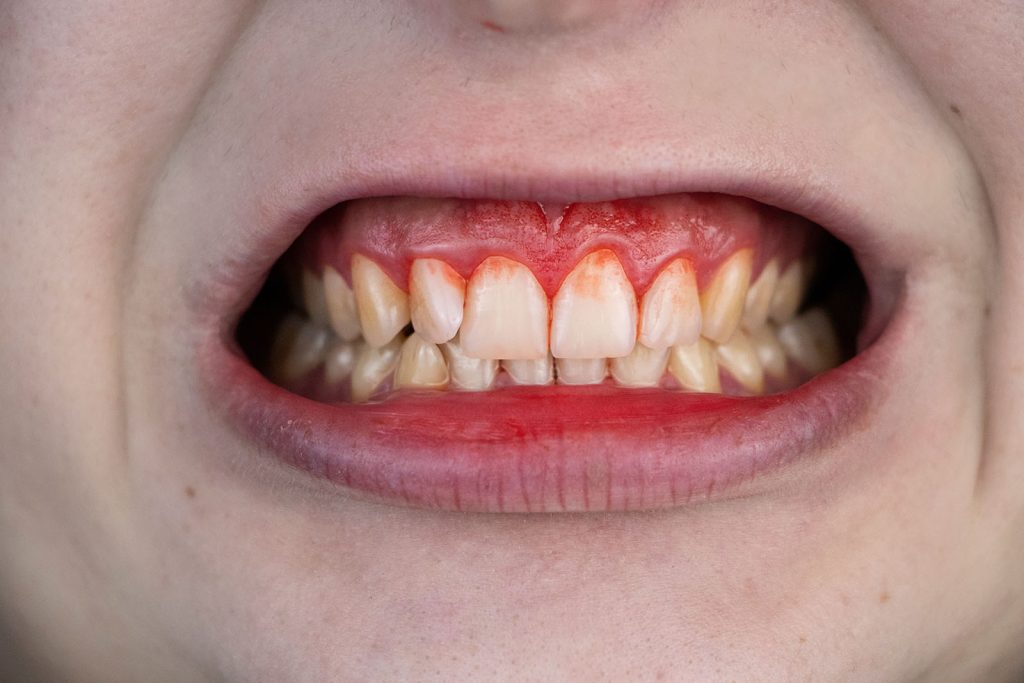
Periodontitis, commonly known as advanced gum disease, is one of the leading causes of tooth loss in adults. It begins silently, often without pain, and by the time most people recognize the symptoms—such as bleeding gums, bad breath, or tooth mobility—some damage has already occurred. But here’s the big question: Can periodontitis be reversed?
As periodontists, we hear this question often. The short answer is no, periodontitis cannot be fully reversed once the supporting bone and tissue have been destroyed. However, with early diagnosis and proper management, you can stop it from progressing, protect your natural teeth, and regain control of your oral health.
In this blog, we’ll break down what periodontitis is, explain why it’s irreversible once it reaches a certain stage, and share 5 expert tips to help you effectively manage the condition.
Understanding Periodontitis: What’s Happening Beneath the Surface
Periodontitis is a chronic inflammatory disease that affects the gums and the bone supporting your teeth. It begins as gingivitis—a reversible condition marked by red, swollen gums that bleed when brushing or flossing. If left untreated, gingivitis can advance to periodontitis, where bacteria penetrate deeper into the gums, forming periodontal pockets and attacking the bone structure.
Over time, periodontitis leads to:
- Loss of gum attachment
- Bone destruction
- Loose or shifting teeth
- Eventual tooth loss
This bone loss is permanent, which is why we say periodontitis can’t be reversed—but it can be treated and stabilized.
Why Periodontitis Is Irreversible
The body’s response to chronic bacterial infection in the gums is to break down tissue and bone in an attempt to isolate the infection. Unfortunately, once this tissue and bone is lost, it does not regenerate on its own. Even with advanced periodontal treatments, complete restoration is not always possible.
However, the good news is that modern periodontics offers a range of therapies to halt the disease, reduce inflammation, shrink periodontal pockets, and prevent further damage.
So while you may not be able to reverse periodontitis, you absolutely can manage it effectively—and keep your teeth for life.
5 Tips to Manage Periodontitis Like a Pro
1. See a Periodontist Early
Periodontists are specialists trained in diagnosing and treating gum disease at all stages. If your dentist has flagged signs of moderate to severe gum disease, or if you’ve noticed symptoms like receding gums, bad breath, or loose teeth, it’s time to see a specialist.
A periodontist can:
- Accurately assess pocket depth and bone loss
- Create a customized treatment plan
- Offer surgical and non-surgical therapies to control the disease
Early intervention is key to saving teeth and protecting your overall health.
2. Commit to Professional Deep Cleaning (Scaling & Root Planing)
The first line of treatment for periodontitis is scaling and root planing (SRP), often referred to as a “deep cleaning.” This procedure removes plaque and tartar buildup below the gumline, where bacteria thrive and cause infection.
SRP smooths the root surfaces, making it harder for bacteria to reattach. After treatment, your gums may tighten around the teeth, reducing pocket depth. While SRP won’t grow back lost bone, it can stop the progression of periodontitis when combined with excellent home care.
3. Master Your Daily Oral Hygiene Routine
Your home care habits are just as important as professional treatments when managing periodontitis. A periodontist will coach you on the most effective routine, which typically includes:
- Brushing twice a day with a soft-bristled toothbrush and fluoride toothpaste
- Flossing daily, or using interdental brushes if your gums have deep pockets
- Using an antimicrobial mouth rinse to reduce bacteria
- Consideration of electric toothbrushes or water flossers for improved plaque removal
Effective daily care prevents plaque buildup, which is critical for preventing the return of inflammation.
4. Stick to a Regular Maintenance Program
Once your periodontitis is under control, you’ll need to stick to a periodontal maintenance schedule, usually every 3–4 months. These visits are more thorough than routine dental cleanings and focus on monitoring pocket depth, removing plaque and tartar, and addressing problem areas before they worsen.
Missing maintenance appointments significantly increases the risk of recurrence. Studies show that patients with periodontitis who follow maintenance care have better long-term outcomes and are more likely to keep their natural teeth.
5. Address Contributing Health and Lifestyle Factors
Periodontitis is not just a dental issue—it’s a whole-body concern. Many systemic conditions and lifestyle choices can worsen gum disease, so managing them is essential to long-term stability.
Key risk factors to address include:
- Smoking: Smokers are up to six times more likely to develop periodontitis. Quitting dramatically improves treatment outcomes.
- Diabetes: Poorly controlled diabetes increases gum disease risk. Work with your physician to maintain healthy blood sugar levels.
- Stress: Chronic stress can suppress your immune system and affect healing. Stress-reduction techniques may benefit your gum health.
- Diet: A nutrient-rich diet supports your immune response. Focus on foods high in vitamin C, antioxidants, and omega-3 fatty acids.
Your periodontist may also recommend tests or refer you to a medical provider if underlying health issues are contributing to your oral condition.
Final Thoughts: Periodontitis Is Manageable—But Not Curable
If you’ve been diagnosed with periodontitis, don’t panic. While the condition is not reversible, it is treatable and controllable. Many patients go on to enjoy decades of stable oral health, natural teeth, and confidence—without further progression of the disease.
At Toronto North Periodontics, our team of specialists is dedicated to helping patients understand their condition and take control of their oral health. We use evidence-based techniques, compassionate care, and individualized treatment plans to support your long-term wellness.
📞 Ready to Take Control of Your Gum Health?
If you’re concerned about gum disease or have been diagnosed with periodontitis, book a consultation at Toronto North Periodontics today. Our expert team is here to help you preserve your smile for life.

